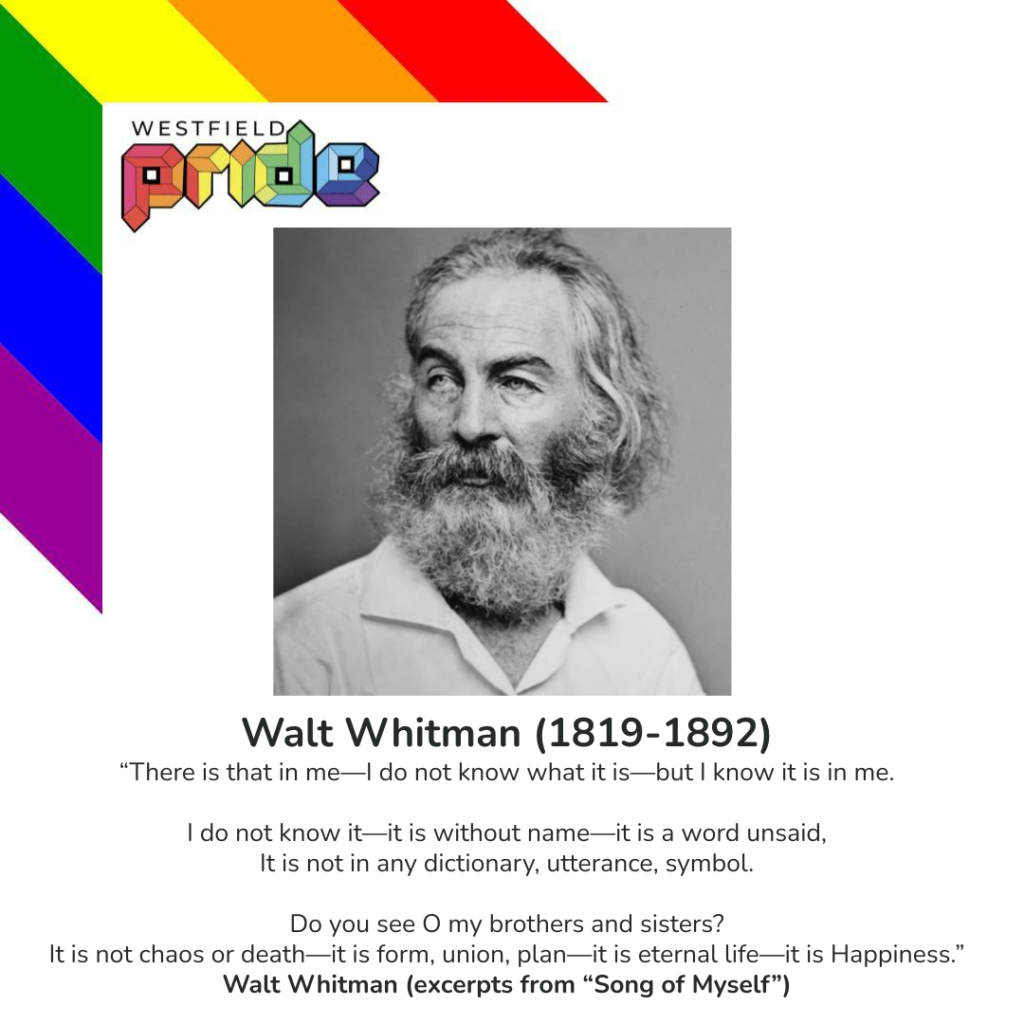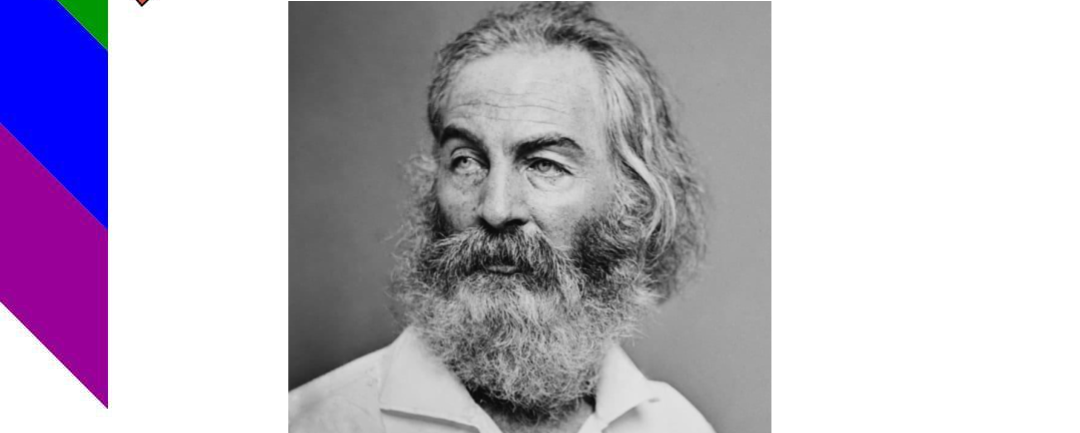
To place the iconic 19th-century poet Walt Whitman on a list recognizing trailblazing LGBTQ+ individuals may be questioned by some, but for many scholars, this trailblazing poet, who “heard America singing,” belongs. While his free-flowing verse and unconventional narrative style championed democracy, the glory of nature, and the American experience, he also celebrated freedom, sensuality, love of the male form, and even his love for Irish immigrant Peter Doyle, whom many believe was the love of his life. Whitman wrote at a time in our country when there were no labels for gay, bisexual, or queer identity. Scholars have noted that he struggled to balance his egocentric wish to be “beloved” as a great poet with his desire to offer honest reflections of his inner self. The question of his identity continues to be debated, as do his lifestyle choices. In his own lifetime, he was harshly criticized for writing what was seen as lewd, offensive, and scandalous. Toward that end, he kept revising his masterwork, Leaves of Grass, to better conform to societal norms. Today, Whitman is one of the most influential writers of all time and the “poet of democracy,” who continues to inspire generations of poets and all those who wish to live authentically. He also continues to spark important discussions about how we view the lives of well-known figures of the past in the context of the times in which they lived and the expansive norms of the modern day. Walt Whitman and his masterful poetry will never be forgotten.
“There is that in me—I do not know what it is—but I know it is in me.
I do not know it—it is without name—it is a word unsaid,
It is not in any dictionary, utterance, symbol.
Do you see O my brothers and sisters?
It is not chaos or death—it is form, union, plan—it is eternal life—it is Happiness.”
Walt Whitman (excerpts from “Song of Myself”)


Comments are closed